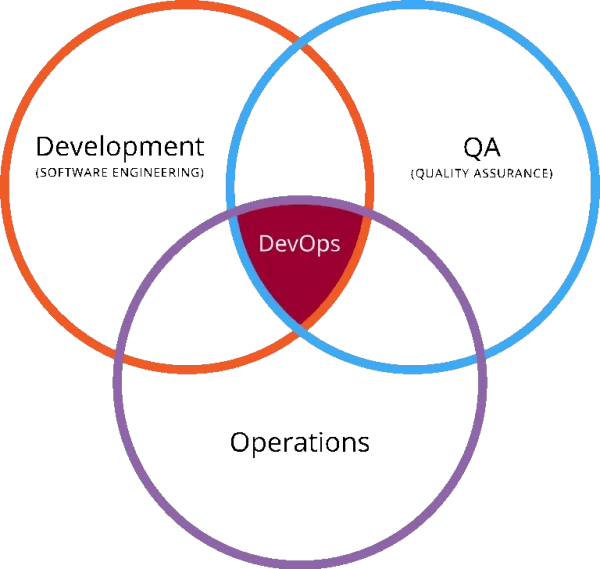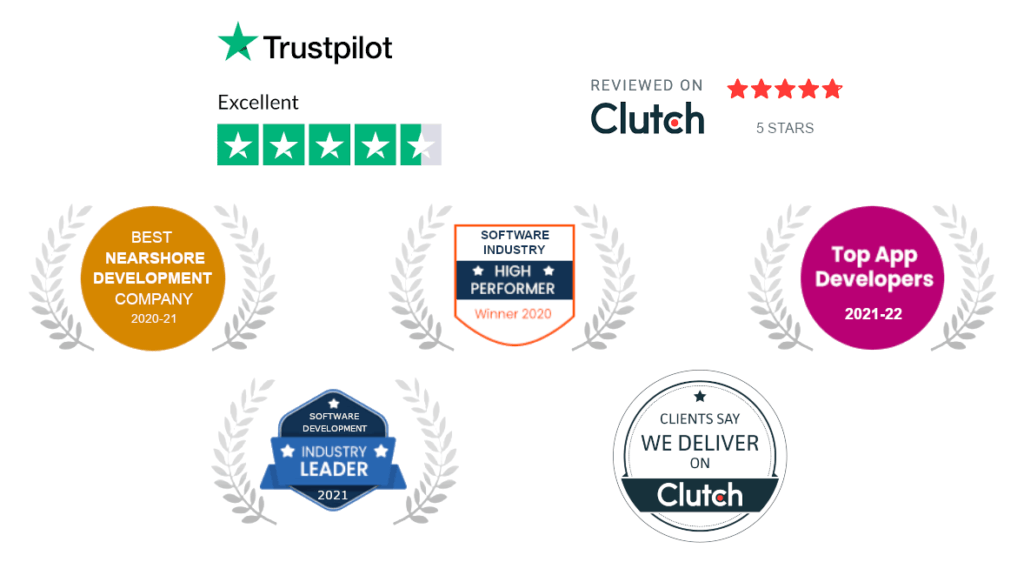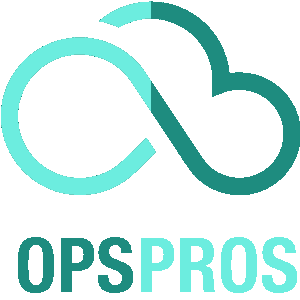We Help You Hire a DevOps Developer From South America
Your next project can often be stressful and time-consuming if you cannot find the right nearshore company to hire with. Smart, responsible, hardworking, and experienced DevOps Developers that are ideal candidates for your role.
Our AI matching algorithm helps your organization find the ideal development partner for your project. The method we use to match a DevOps Developer your team is a combination of data and personal interviews.
We are dedicated to helping you hire DevOps Developers who will contribute quality code right from the start. This is why we have refined our hiring processes over the past several years and have become a trusted partner for many startups that are growing rapidly. Add an expert to your team with OPSPROS and hire your future DevOps Developer.
Work to US Time
Our DevOps Developers work US hours and are happy to communicate with your existing team so they can gel with them.
Brazilian Rates
Our team is made up of talented and experienced Devops Developers from Brazil who are eager to work with US companies.
No Employment Tax
Benefits, local employment taxes, and other employment-related expenses are handled by our company.
Tested DevOps Developer
It ensures your hiring a skilled professional who has passed our testing process when you hire a DevOps Developer from us.
Testimonials



Why Do You Need A DevOps Developer?

In today’s rapidly evolving software landscape, organizations strive for efficient, reliable, and scalable software delivery. Hiring a DevOps developer is crucial in achieving these goals. DevOps developers possess a unique skill set that combines software development expertise with operations knowledge. Here’s why you need a DevOps developer:
Streamlined Development and Operations Collaboration
A DevOps developer bridges the gap between development and operations teams, promoting collaboration, shared responsibility, and efficient workflows. They break down silos, fostering a culture of communication and cooperation for seamless project delivery.
Continuous Integration and Deployment (CI/CD)
DevOps developers automate build, testing, and deployment processes, implementing robust CI/CD pipelines. This enables frequent, reliable, and rapid releases, reducing time-to-market and improving software quality.
Infrastructure as Code (IaC) Implementation
DevOps developers leverage Infrastructure as Code (IaC) practices to automate infrastructure provisioning, configuration, and scaling. This ensures consistency, scalability, and repeatability in deploying and managing infrastructure resources.
Effective Monitoring and Performance Optimization
DevOps developers implement monitoring and logging solutions to proactively identify and resolve performance issues. They optimize system performance, scalability, and reliability through thorough monitoring, analysis, and infrastructure optimization.
Efficient Resource Utilization and Cost Savings
By automating processes, optimizing infrastructure, and improving collaboration, DevOps developers increase operational efficiency, eliminate manual tasks, minimize errors, and enable efficient resource utilization. This leads to significant cost savings.
Security and Risk Mitigation
DevOps developers incorporate security practices into the development process, ensuring secure coding, vulnerability assessments, and compliance. They reduce the risk of data breaches and maintain system integrity.
Why hiring a DevOps developer might be a good idea?
Hiring a DevOps developer brings numerous benefits, including streamlined collaboration, CI/CD implementation, IaC practices, effective monitoring, cost savings, security, and risk mitigation. Their expertise empowers organizations to deliver software efficiently, reliably, and at scale, ultimately enhancing competitiveness and enabling rapid adaptation to market demands.

Difference between a DevOps Developer and DevOps Engineer
In the world of DevOps, two common roles that often come up are DevOps Developer and DevOps Engineer. While they share similarities, there are distinct differences in their responsibilities and areas of focus.
DevOps Developer
A DevOps Developer is primarily focused on the development aspects of the DevOps practice. They have a strong software development background and expertise in coding, scripting, and automation. Their main responsibility is to bridge the gap between development and operations teams by implementing tools and practices that enable continuous integration, continuous delivery, and infrastructure automation. DevOps Developers excel in creating and maintaining CI/CD pipelines, writing code for automation, and optimizing the development process.
DevOps Engineer
A DevOps Engineer, on the other hand, has a broader scope that encompasses both development and operations aspects. They possess a well-rounded skill set and work to align development, operations, and other cross-functional teams. DevOps Engineers focus on establishing efficient processes, implementing and managing infrastructure, ensuring system reliability and scalability, and promoting collaboration across teams. They are responsible for setting up and maintaining tools, monitoring system performance, troubleshooting issues, and optimizing resource utilization.
The Difference
While both roles contribute to the DevOps practice, a DevOps Developer primarily focuses on the development side, implementing automation and CI/CD pipelines, while a DevOps Engineer has a broader scope, addressing development, operations, and overall collaboration to achieve efficient and reliable software delivery.
- Faster Time-to-Market
- Improved Collaboration
- Enhanced Quality and Stability
- Increased Scalability
- Reduced Downtime
- Continuous Improvement
- Cost Efficiency
- Increased Customer Satisfaction

MARIA SILVA
DevOps Developer
11+ Years of DevOps 8+ Years of Linux Development. Has a wealth of web development expertise across many industries

FRANCISCO DE OLIVEIRA
DevOps Developer
8+ Years of Python 8+ DevOps He enjoys working on both Local Servers and Cloud

PAULO DE SOUZA
DevOps Developer
13+ Years of Software Development 10+ DevOps. Experienced senior DevOps Developer who enjoys a challenge.
What does a DevOps Developer do?
A DevOps Developer is a key player in the software development process, responsible for bridging the gap between development and operations teams. They combine development expertise with operations knowledge to streamline the software delivery lifecycle. Here’s what a DevOps Developer does:
Automation and Continuous Integration
DevOps Developers focus on automating build, test, and deployment processes. They create and maintain CI/CD pipelines, enabling frequent and reliable software releases. They automate configuration management, code deployments, and infrastructure provisioning to ensure consistency and efficiency.
Tools and Infrastructure
DevOps Developers are proficient in tools and technologies such as Git, Jenkins, Docker, and Kubernetes. They select, configure, and manage these tools to facilitate efficient development and deployment workflows. They also work on implementing infrastructure-as-code practices for scalable and reproducible infrastructure management.
Monitoring and Performance Optimization
DevOps Developers implement monitoring and logging solutions to proactively detect and resolve performance issues. They analyze system metrics, identify bottlenecks, and optimize system performance, scalability, and reliability. They strive to ensure high availability and optimal performance of the software.
A DevOps Developer automates processes implements CI/CD pipelines, manages tools and infrastructure, promotes collaboration, and optimizes system performance. They play a crucial role in streamlining the software development process, enabling faster, more efficient, and more reliable software delivery.


We Are A Solid Development Operations Partner
OpsPros understands the importance of working with a reliable partner. As a result, we provide a premium and professional service to all our clients. Get in touch with us now to start your DevOps team!
How do you Hire a DevOps Developer?
Follow these three steps to hire a DevOps Developer:
Please click on the button below and click send on the form once you’ve written a description of your project and needs.
Interview DevOps Developers based on their resumes. Start shortlisting professionals you want to interview once proposals start coming in.
When you write your requirement description, you determine the scope of your work and the type of DevOps Developer you need
In order to receive a fast and detailed response, please include the following information:
Detailed deliverables: From websites to APIs and big data analytics, list them all.
Identify whether the project is small or large in your job posting.
Let us know if you prefer experience with certain industries, software.
Billing: Please indicate your preference for hourly rates versus priced monthly contracts.
How much does it cost to Hire a DevOps Developer?
Several factors affect cost, including expertise, experience, market conditions, and location.
Additionally, an experienced DevOps Developer will provide higher-quality results, work faster, and have more specialized knowledge.
Once they gain experience, beginners might be able to price their services higher.
Below are the rates for hiring our South American DevOps Developers
Junior
Prices From- Works to U.S time zones
- No Recruitment Fees
- Vetted Skills & Experience
- Fulltime Working for you
- No Unreliable Freelancers
Intermediate
Prices From- Works to U.S time zones
- No Recruitment Fees
- Vetted Skills & Experience
- Fulltime Working for you
- No Unreliable Freelancers
Senior
Prices From- Works to U.S time zones
- No Recruitment Fees
- Vetted Skills & Experience
- Fulltime Working for you
- No Unreliable Freelancers
We have DevOps Developers in South America available for hire!
Depending on the exact skill requirements and experience requirements, the price of Developers may vary slightly.
Depending on your project, you’ll need to determine which is right for you.
Do DevOps Developers write code?
Yes, DevOps Developers do write code as part of their responsibilities. They utilize programming languages like Python to automate processes, implement infrastructure-as-code, and create scripts for various tasks. Here are two examples of code snippets commonly written by DevOps Developers in Python:
Infrastructure Provisioning Script: DevOps Developers use Python to write scripts for automating the provisioning of infrastructure resources. This example demonstrates using the Boto3 library to provision an EC2 instance in AWS.
import boto3
def provision_ec2_instance():
ec2 = boto3.client('ec2')
response = ec2.run_instances(
ImageId='ami-12345678',
InstanceType='t2.micro',
MinCount=1,
MaxCount=1
)
instance_id = response['Instances'][0]['InstanceId']
print(f"New EC2 instance created with ID: {instance_id}")
if __name__ == '__main__':
provision_ec2_instance()Deployment Automation Script: DevOps Developers write scripts to automate deployment processes, enabling continuous integration and delivery. This example shows a simple script that deploys a web application using the Fabric library.
from fabric import Connection
def deploy_web_application():
# Connect to the remote server
c = Connection('user@server')
# Pull latest changes from the repository
c.run('git pull')
# Install dependencies and build the application
c.run('npm install')
c.run('npm run build')
# Restart the web server
c.run('sudo systemctl restart nginx')
print("Web application deployment complete!")
if __name__ == '__main__':
deploy_web_application()Interview Questions to ask a DevOps Developer
Can you describe your experience in implementing and maintaining CI/CD pipelines?
This question assesses the candidate’s knowledge and experience in setting up continuous integration and continuous deployment pipelines. Look for their understanding of various tools, their ability to automate build, test, and deployment processes, and their knowledge of best practices in CI/CD implementation.
How do you approach infrastructure automation and configuration management?
This question evaluates the candidate’s expertise in infrastructure-as-code practices and configuration management. Assess their familiarity with tools like Terraform or Ansible, their ability to define infrastructure as code, and their experience in automating the provisioning and management of infrastructure resources.

Can you explain your approach to monitoring and log management in a DevOps environment?
This question assesses the candidate’s understanding of monitoring and logging practices in a DevOps context. Look for their knowledge of monitoring tools, log aggregation, and their ability to set up effective monitoring and alerting systems to ensure system availability and performance.

Do you enjoy Working Alone or within a Team?
There is no right or wrong answer to this question since DevOps developers can have any combination of skills. Having a developer who is hardworking and independent may be important to you. You might prefer someone who works well with others and isn’t stubborn.
How do you foster collaboration between development and operations teams?
Collaboration is key in a DevOps environment. This question assesses the candidate’s ability to promote effective collaboration and communication between different teams. Look for their experience in implementing DevOps practices, establishing communication channels, resolving conflicts, and fostering a culture of collaboration.
A Brief History of DevOps
DevOps development emerged as an extension of the Agile movement in the early 2000s. It aimed to address the challenges of siloed development and operations teams, emphasizing collaboration, flexibility, and continuous improvement.
Automation and Continuous Delivery
Automation played a crucial role in the evolution of DevOps development. The introduction of tools and practices such as continuous integration (CI) and continuous delivery (CD) enabled seamless integration of code changes and frequent, automated deployments.
Shift to Infrastructure as Code
DevOps development witnessed a shift towards Infrastructure as Code (IaC), where infrastructure configuration is managed through code. This approach improved scalability, repeatability, and consistency in deploying and managing infrastructure resources.
Focus on Culture and Collaboration
DevOps development recognized the importance of a collaborative culture. It promoted cross-functional teams, communication, and shared responsibility, fostering a culture of trust, feedback, and continuous learning.
Expansion to DevSecOps
The DevOps movement expanded to include security, leading to the emergence of DevSecOps. This integration ensures security is integrated throughout the development lifecycle, addressing vulnerabilities and compliance requirements.
DevOps Development Today
DevOps development has transformed the software industry by promoting collaboration, automation, and a culture of continuous improvement. With a focus on Agile principles, automation, Infrastructure as Code, and collaboration, DevOps development has revolutionized software delivery, enabling organizations to deliver software faster, more reliably, and with improved quality. The journey continues as DevOps development evolves to embrace emerging technologies and practices.
Why you should choose us to hire a DevOps Developer from?
As a leading Nearshore Technology Solutions provider, we provide high-quality DevOps Developers at reasonable prices. High-performance, scalable solutions are our goal for our clients. Throughout the project development phase and beyond, we strive to create long-term value.
Since 2014, we’ve matched skillful DevOps Developers with great teams for over a hundred startups and tech companies worldwide.
You will find our DevOps Developers to be devoted members of your team, fully integrating into your team’s operation.
DevOps Developers that we hire undergo a thorough vetting process to ensure they have the necessary communication skills, remote work readiness, and technical skills (both for DevOps, development and cloud ).
Reduce Costs
In order to reduce costs, companies usually outsource. The cost of hiring DevOps developers outside the United States is lower. Additionally, you will be able to reduce overall employment costs significantly. There won’t be any US or European employment taxes, benefits, redundancy liabilities, or office space fees.
Ramp Up Faster
Taking advantage of growth and downsizing quickly can be a great competitive advantage for any industry. When you hire Brazilian DevOps developers through us, you will be able to scale up or down as needed, and do so relatively easily.
Trusted Partner
By outsourcing DevOps, you’re entrusting your project to a company with extensive experience helping businesses succeed. Thus, you can rest assured that your application will be delivered on schedule and within budget.
Why hire a DevOps Developer?
In today’s fast-paced and competitive software industry, organizations seek efficient and reliable software delivery. Hiring a DevOps developer is crucial for achieving these goals. They possess a unique skill set that combines development expertise with operations knowledge. Here’s why you should hire a DevOps developer:
Streamlined Collaboration and Efficiency
A DevOps developer bridges the gap between development and operations teams, enabling seamless collaboration, shared responsibilities, and efficient workflows. They promote communication and cooperation for streamlined project delivery.
Automation and Continuous Integration
DevOps developers automate build, test, and deployment processes, implementing robust CI/CD pipelines. This enables frequent, reliable, and rapid releases, reducing time-to-market and improving software quality.
Infrastructure as Code and Scalability
DevOps developers leverage Infrastructure as Code (IaC) practices to automate infrastructure provisioning, configuration, and scaling. They ensure scalability, repeatability, and consistency in deploying and managing infrastructure resources.
Why hire a DevOps Developer?
Hiring a DevOps developer brings numerous benefits, including streamlined collaboration, automation, CI/CD implementation, Infrastructure as Code practices, monitoring, and performance optimization. Their expertise empowers organizations to deliver software efficiently, reliably, and at scale, ultimately enhancing competitiveness and enabling rapid adaptation to market demands.

- Continuous Integration and Deployment (CI/CD)
- Improved Automation
- Infrastructure as Code (IaC)
- Monitoring and Alerting
- Better Collaboration and Communication
- Improved Security and Compliance
How do we test a DevOps Developer to check his skills?

To test a DevOps developer, we evaluate their technical skills through real-world problem-solving scenarios. Assess their proficiency in tools and technologies used in DevOps, such as CI/CD pipelines, infrastructure automation, and monitoring systems.
We also evaluate their ability to collaborate and communicate effectively with different teams. Reviewing their project experience to gauge their practical knowledge in implementing DevOps practices, including setting up pipelines and automating processes.
By assessing their technical skills, problem-solving abilities, collaboration skills, and project experience, we effectively test a DevOps developer’s capabilities.
How do you Integrate DevOps Developers into your existing development team?
Integrating DevOps Developers into an existing development team requires careful planning and effective collaboration. Here’s how to approach the integration:
Assess Current Team Structure and Processes:
Evaluate the current development team structure, processes, and workflows. Identify areas where DevOps practices can bring the most value and align with the team’s goals and project requirements.
Define Roles and Responsibilities:
Clearly define the roles and responsibilities of DevOps Developers within the development team. Determine how they will collaborate with developers, testers, and other stakeholders. Ensure everyone understands their respective roles and the value each role brings to the team.

Promote Cross-Functional Collaboration:
Encourage cross-functional collaboration between DevOps developers and other team members. Facilitate regular meetings, stand-ups, and knowledge-sharing sessions. Foster an environment where team members can learn from each other, exchange ideas, and work together to solve challenges.
Establish Continuous Integration and Deployment (CI/CD) Pipelines:
Implement CI/CD pipelines and automation practices that seamlessly integrate with the existing development workflow. Collaborate with DevOps Developers to configure and optimize these pipelines, ensuring a smooth and efficient software delivery process.
Provide Training and Support:
Offer training and support to the development team to familiarize them with DevOps concepts, tools, and practices. Conduct workshops, provide documentation, and encourage skill-sharing sessions. This ensures that everyone understands the importance of DevOps and can actively contribute to its implementation.
Encourage a Culture of Continuous Improvement:
Promote a culture of continuous improvement and learning within the team. Encourage team members, including DevOps Developers, to experiment, innovate, and propose process optimizations. Embrace feedback loops, retrospective discussions, and data-driven decision-making to drive continuous improvement.
Ready for Sucess
By following these steps, integration of DevOps Developers into an existing development team can be done effectively, ensuring collaboration, streamlined processes, and successful adoption of DevOps practices throughout the software development lifecycle.

How long on average does a DevOps Developer stay at a company?
DevOps Developers in the US tend to stay between 1.4 and 3.3 years in their jobs, with larger companies keeping workers longer. On average, Brazilians spend between 1.9 and 4.1 years in the job, with Sao Paulo residents spending the shortest amount of time there. Previously, people tended to spend their entire careers with the same company.
DevOps Developers with experience may depart from one job to another for new opportunities and more money, as such longevity is no longer the norm. The most in-demand DevOps development pros can migrate between jobs (or even freelance) fairly easily in this market due to a low unemployment rate and a great need for professionals with deployment, cloud, and other important skills. We offer perks to attract and retain top talent, and we value communication with employees.

Frequently Asked Questions (FAQs)
Our services are trusted by hundreds of startups and tech companies worldwide, and we have matched hundreds of skilled Developers to great development teams in the US, UK and Canada. Every DevOps Developers in our network goes through a vetting process to verify their communication abilities, remote work readiness, and technical skills, both for depth in DevOps and breadth across the greater development and deployment domain.
The job description of a DevOps Developer should include the following:
Deployment, implementing, and managing software
New program testing and evaluation
Enhancing existing programs by identifying areas for improvement
Scripting and Automation
Analyzing operational feasibility
Establishing procedures for quality assurance
Implementing software tools, processes, and metrics
Upgrades and maintenance of existing systems
Assisting other developers, UX designers, and business analysts with their tasks
It’s not enough to just ship features; your software needs to help your business succeed. In order to better understand what you’re building, for whom, and why, we’ll begin our collaboration with a discovery process.
Our headquarters are in Sao Paulo, Brazil. We have clients from all over the world. We have successfully collaborated with companies in North America, Asia, the Middle East, and Europe. A good understanding of each client and excellent English communication skills help the process run smoothly.
We can work with you to scale the team down as needed and make sure you have the correct skills required for each project phase.
All Types! You can hire a DevOps Developer on a full-time, part-time, or contract-to-hire basis at OPSPROS. You can find a DevOps Developer in a time zone that suits your needs thanks to our global network of skilled DevOps developers. Developers who work remotely for us are all mid- and senior-level professionals, ready to work right away.

